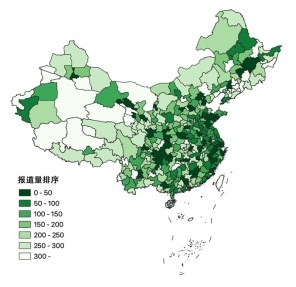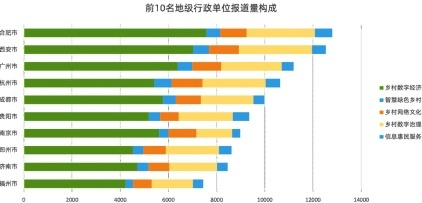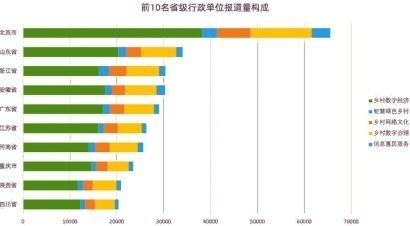Report on 2021 China’s Digital Village Construction based on Big Data
Jun 14, 2022
Peking University, June 14, 2022: PKU School of Government and PKU Institute of Public Governance together with Sichuan Agricultural University (SCAU) have jointly released the “China’s Digital Village Construction Report 2021: Evaluation of the Big Data in Media”. Based on big data sourced from mainstream media, the report provides a comprehensive and detailed evaluation of the progress of China’s digital village construction, providing a reference for further developments of digital villages in different regions.
As the information on the construction of digital villages is non-uniform and varies in accessibility, there remains a significant challenge to conducting a nationwide and systematic evaluation of the construction of digital villages. Hence, the report selected big data from 13 online media sources such as People's Daily, Xinhua News and China News. With data collected from these sources, the report provided an in-depth analysis that is specific to the prefecture level and reveals the development trends in different geographical locations.
Uncovering the potential of China's Western Regions
According to the research, China's eastern regions take the lead in the national digital village construction, followed by the central regions. Some parts of western and northeastern regions also display prominent trends. According to the data from the mainstream media, 22 of the top 50 villages with the greatest number of relevant reports on the digital village are located in the eastern regions, 11 in the central regions, 14 in the western regions, and 3 in the northeastern regions. It is noteworthy that although the overall economic and technological development level of the western regions lagged behind that of the central and eastern regions, the accelerating rates of construction of digital villages in the western region are displaying trends that it would likely catch up to the eastern regions soon. Provinces such as Guizhou, Guangxi, Shanxi and Gansu in the west show remarkable growth trends.
 Geographical distribution of the digital villages based on mainstream media coverage
Geographical distribution of the digital villages based on mainstream media coverage
Rural digital economy and rural digital governance are the top developed areas
According to the “Digital Construction Guide 1.0” released by the Cyberspace Administration of China, the five main development fields of digital villages are digital village economy, smart green countryside, rural internet culture, rural digital governance and information technology management service . In this study, the analysis of the big data collected from the mainstream media big data shows that the rural digital economy and rural digital governance are the main areas with the most achievements, accounting for 59% and 21% of the total media coverage respectively. Meanwhile, rural internet culture accounts for 11%, and smart green countryside and information technology management service both account for 5%. The areas with the least media reports are rural digital literacy promotion, green development of the agricultural sector , Smart Senior Care , Internet Plus Education model and the “three rural” (sannong) internet culture creation , all accounting for less than 2% each.
 Distribution of media coverage in the five major areas and 21 sub-areas of the digital villages
Distribution of media coverage in the five major areas and 21 sub-areas of the digital villages
 Top 10 prefecture-level administrative units in terms of digital village related coverage
Top 10 prefecture-level administrative units in terms of digital village related coverage
 The top 10 provincial administrative units in terms of digital village related coverage
The top 10 provincial administrative units in terms of digital village related coverage
Based on the results, the report provides the following advice for China’s digital village construction. Firstly, integrate the construction of digital villages with regional coordinated development to narrow the gap of uneven development between regions. By seizing the chance provided by digital transformation, regressive areas would hopefully be spurred to catch up with the relatively more developed eastern regions. Secondly, apart from enhancing the rural digital economy and rural digital governance, more efforts can be invested in the construction of rural internet culture, smart green countryside and information technology management services. Thirdly, different successful experiences can be utilized as a reference for the construction of digital villages in other regions nationwide.
Written by: Feng Shiqi
Edited by: Shi Xinyao
Source: PKU News (Chinese)



